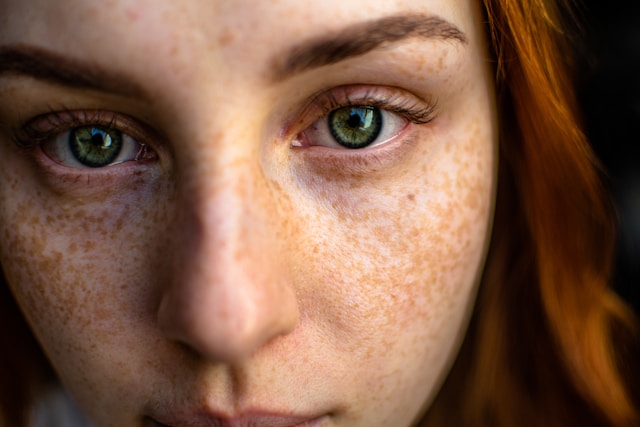The Dangers of Skin Bleaching Creams: What Many Nigerians Don’t Know
Skin bleaching in Nigeria has become a common trend, especially among young women and even some men. The desire for lighter skin has led many to use skin-lightening creams without proper knowledge of the dangers they carry. From markets to Instagram vendors, there are thousands of creams, soaps, and serums promising to give users a “glow” or “toned” complexion within days. But what many Nigerians don’t know is that behind the sweet-smelling bottles lie serious health risks.
Why Skin Bleaching Is Popular in Nigeria
The pressure to have lighter skin often comes from society’s misplaced standard of beauty. In movies, music videos, and even job markets, fair skin is sometimes wrongly associated with beauty, class, or success. Many people, especially young women, turn to bleaching products hoping to fit into these standards.
Some say it boosts their confidence. Others claim it helps them look better for social media, relationships, or modelling. But the price of this so-called confidence is much higher than many realize.
Fake and Unregulated Creams Flood the Market
One of the biggest problems is the flood of unregulated creams in Nigeria. Many are imported illegally or mixed locally with no NAFDAC approval. These products may contain dangerous chemicals like:
- Mercury – a toxic substance that can damage the kidneys and nervous system.
- Hydroquinone – often used in high concentrations that can thin the skin and cause irreversible damage.
- Corticosteroids – meant for short-term use in medical treatment, but misused in creams to bleach the skin fast.
Vendors rarely disclose the real ingredients. Some even mix multiple creams together and repackage them with fancy names like “glow set,” “half-caste pack,” or “Egyptian whitening.” Many Nigerians buy these products blindly, not knowing what they’re putting on their skin.
Short-Term Effects May Look Good, But…
When users start applying these creams, they often notice fast results. Their skin becomes lighter, smoother, and they receive compliments. But what starts as beauty soon turns into a nightmare.
Within a few months of constant use, users may notice:
- Stretch marks in unusual places
- Green or dark veins showing on the skin
- Thinning skin that bruises easily
- Severe sunburn after exposure
- Dark knuckles, elbows, and knees
These are signs of chemical damage. Once the skin barrier is weakened, the body loses its natural protection, making users more vulnerable to infections, wounds, and long-term disease.
Long-Term Damage: What You Don’t See Immediately
Over time, skin bleaching in Nigeria has led to serious health conditions. Medical reports have shown that continuous use of mercury and hydroquinone can result in:
- Kidney damage
- High blood pressure
- Permanent skin discoloration (known as ochronosis)
- Acne and fungal infections due to destroyed skin layers
- Skin cancer risk due to damaged melanin cells
Mercury poisoning is especially dangerous for pregnant women, as it can affect the baby’s brain development. Yet, many users are unaware that some of these creams contain high levels of this dangerous metal.
The Psychological Trap
Another danger is the psychological addiction to these creams. Once users see themselves with lighter skin, they become afraid to stop—even after noticing the damage. They fear going back to their natural complexion or facing shame from people who are used to their “bleached” look.
This often leads to low self-esteem, depression, and continued use of dangerous products just to “maintain the look.” It becomes a cycle that is hard to break.
Fake Confidence, Real Consequences
Many people who bleach are searching for confidence or attention. But true confidence comes from self-acceptance, not from changing your skin. Skin bleaching in Nigeria continues to destroy not just faces and bodies, but lives. Marriages break, health fails, and dreams end because of the long-term impact of these products.
How to Stop and Heal Naturally
If you or someone you know is using bleaching creams, it’s not too late to stop. Here are steps you can take:
- Discontinue all bleaching products immediately.
- See a dermatologist if you’re already seeing damage.
- Switch to natural skincare like shea butter, aloe vera, black soap, and coconut oil.
- Protect your skin from the sun using hats and sunscreen.
- Drink water and eat fruits to restore your skin’s glow from the inside.
Healing may take time, but your body and skin will thank you for it. And most importantly, your health and life will not be at risk anymore.
Changing the Narrative
We must all help change the beauty narrative in Nigeria. Fair skin does not mean better. Black skin is beautiful, powerful, and worthy. Schools, religious leaders, influencers, and health professionals must educate people about the dangers of skin bleaching and promote self-love.
Instead of risking your life for a temporary look, embrace your natural beauty and inspire others to do the same. No cream is worth your kidney, confidence, or future.
Have you had an experience with bleaching creams or know someone who has? Share your story in the comments below or send us a message. Your voice might save another life.

